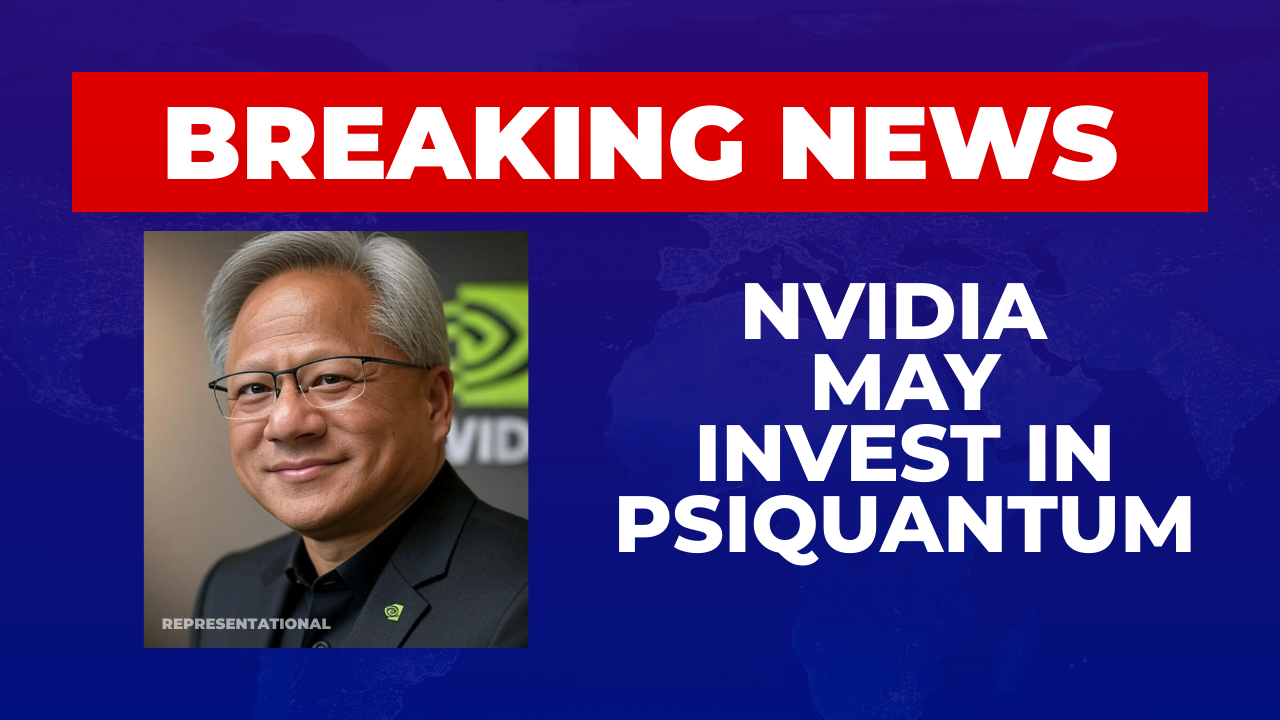Nvidia (NVDA), the leading producer of graphics processing units (GPUs) critical for cryptocurrency mining, is reportedly in advanced talks to invest in PsiQuantum, a quantum computing startup valued at $6 billion pre-money, according to Reuters. This strategic move, as Nvidia prepares to announce its Q1 earnings on May 28, 2025—with expected earnings of $0.89 per share and revenue of $43.07 billion—could redefine its role in the tech landscape
PsiQuantum, backed by a $750 million funding round led by BlackRock (BLK), which closed Friday at $989.71 (–0.79%), is pioneering photonic quantum computing. Unlike traditional quantum systems, PsiQuantum’s approach uses photons and standard semiconductor manufacturing, enabling scalable production of its Omega chipset. The company aims to deliver a commercially viable quantum computer by 2029, with partnerships including GlobalFoundries, DARPA, and government projects in Chicago and Brisbane.
Quantum computing leverages quantum mechanics—superposition, entanglement, and interference—to perform calculations far beyond the capabilities of classical computers, including Nvidia’s GPU-powered AI systems. For cryptocurrency, quantum computers could break current cryptographic algorithms, threatening blockchain security. A 2023 study suggested quantum attacks could compromise Bitcoin within a decade, urging the development of quantum-resistant encryption.
Nvidia’s GPUs dominate crypto mining and AI, but quantum computing could unlock new applications in cybersecurity, drug discovery, and financial modeling. PsiQuantum’s scalable technology aligns with Nvidia’s recent quantum initiatives, including its Boston research center and “Quantum Day” event. This investment could position Nvidia to address quantum threats to crypto while diversifying its portfolio.
As quantum technology advances, its impact on cryptography and digital finance grows. Nvidia’s potential stake in PsiQuantum signals a bold step toward shaping the future of computing and securing cryptocurrency’s foundation.
Also Read – What it will take for XRP to become the next Bitcoin?
PsiQuantum Stock Information
- Company Overview: Founded in 2016, PsiQuantum is a Palo Alto–based private quantum computing startup focused on photonic quantum computing. Using photons as qubits and semiconductor manufacturing, it aims to build a million-qubit system by 2029. In 2025, it raised $750 million at a $6 billion pre-money valuation, led by BlackRock (BLK, $989.71).
- Stock Status: PsiQuantum is not publicly traded and has no ticker symbol (PSIQ belongs to another entity). Pre-IPO shares trade on platforms like Hiive, with December 2024 prices at $13–$15 per share. No IPO filing exists yet, but its funding and partnerships suggest a future listing is possible.
- Investment Context: PsiQuantum’s Omega chipset, a $10.8 million Air Force contract, and Nvidia’s investment talks highlight its potential. However, pre-IPO investing is high risk, limited to accredited investors, and speculative due to quantum computing’s early stage.

Explaining Quantum Computing
Quantum computing harnesses quantum mechanics to process information in ways classical computers cannot. Unlike classical bits (0 or 1), quantum bits (qubits) exist in superposition, representing 0 and 1 simultaneously. Qubits can also be entangled, linking their states across distances, and use interference to amplify correct solutions. These properties enable quantum computers to tackle complex problems—like factoring large numbers or simulating molecules—exponentially faster than classical systems, including Nvidia’s GPU-powered AI.
For cryptocurrency, quantum computing poses a dual-edged sword. It could break widely used cryptographic algorithms (e.g., RSA, ECC), potentially compromising blockchain security. For instance, Shor’s algorithm on a large-scale quantum computer could crack Bitcoin’s encryption, exposing wallets. However, quantum computing also offers solutions, like quantum-resistant cryptography, to secure future blockchains. Beyond crypto, it promises breakthroughs in cybersecurity, drug discovery, and optimization, making investments like Nvidia’s in PsiQuantum critical for technological leadership.
Disclaimer:
This article is written in good faith and with proper care. However, complete accuracy is not guaranteed. Updates or corrections will be made wherever necessary. This article does not constitute financial advice. It is meant for informational and educational purposes only. Some parts of the content have been prepared with the help of AI tools, but the article has been published after careful editorial review.

